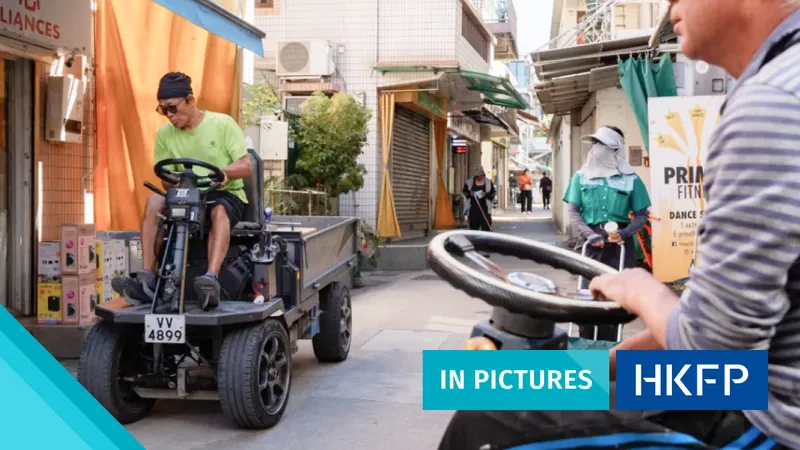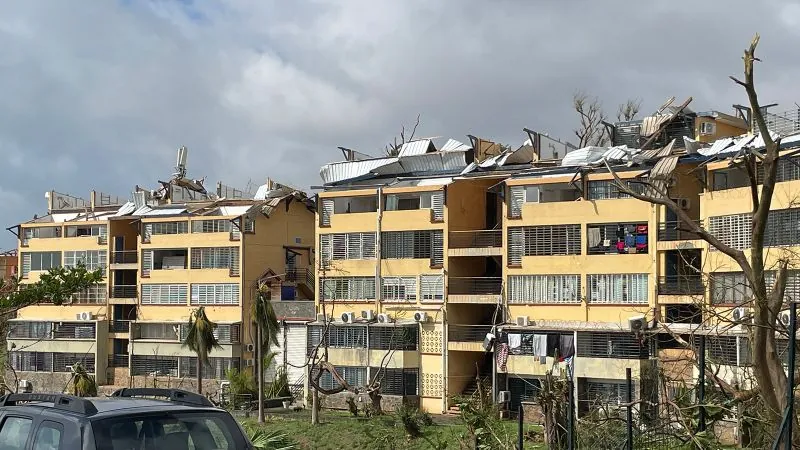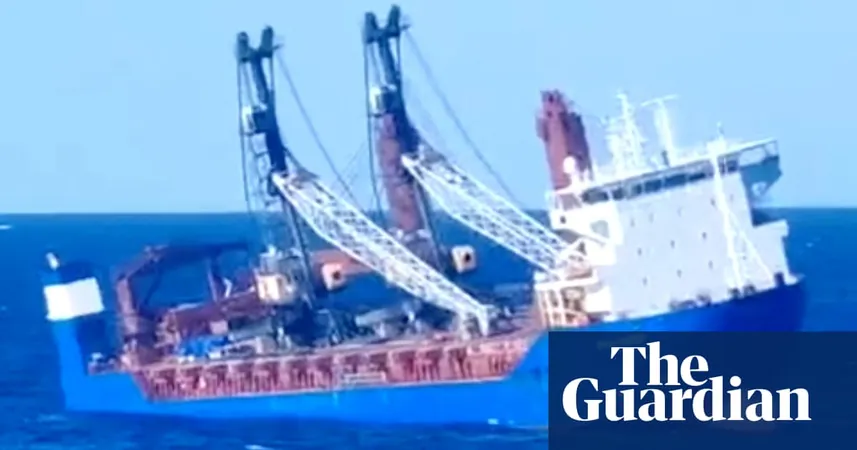
The Tiny Workhorses of Lamma Island: How 'Village Vehicles' Fuel an Unconventional Economy
2024-12-25
Author: Yan
Introduction
In the picturesque landscapes of Lamma Island, Hong Kong, conventional vehicles like cars, trucks, and buses are absent. Instead, this serene sanctuary has cultivated a unique transport culture revolving around “village vehicles” (VVs), a fleet of miniature trucks that serve as the lifeblood of local logistics and commerce. These tiny trucks, slightly wider than a meter, are an integral part of the island's daily operations, soaring through narrow paths that wind through dense jungles and quaint villages.
Investment and Regulations
However, owning a VV isn't just about convenience; it's also a hefty investment. The price tag for these mini transporters can soar to a staggering one million Hong Kong dollars, surpassing that of luxury vehicles such as the top-spec Toyota Alphard. Current and aspiring owners must navigate a maze of regulations, as the Hong Kong government has halted the issuance of new VV licenses to maintain a controlled supply in the face of rising demand.
Economic Impact
Joe Yu, an owner of two VV licenses, emphasizes the trucks’ critical role in supporting the local economy, predominantly fueled by housing construction and government projects. He declared, “VV demand is driven by village housing construction and government works. They are a necessity driving Lamma’s economy.” The high costs—around HK$800,000 for a license and an additional HK$200,000 for the vehicle itself—are a reflection of this unprecedented demand.
Operational Constraints
Limited by strict operating hours—Monday to Friday from 7 am to 9 pm, and Saturday mornings—these vehicles can only carry cargo and are not permitted to transport passengers. Licensed for these special duties, a few are even allowed to travel between the northern and southern tips of Lamma Island.
Historical Context
The origin of these village vehicles dates back to the 1970s, when the Transport Department began issuing special licenses aimed at simplifying logistics in remote areas. Back then, acquiring a license was as easy as paying a small registration fee. Today, however, the dynamic has shifted dramatically; transactions occur informally, making it difficult to track the skyrocketing prices. One local resident, known to the community as Dai Fat, shared his experience of purchasing a VV for only HK$10,000 back in 1991—a stark contrast to the steep prices seen today.
Community Feedback
Despite their operational importance, the noise and speed of VVs have become a source of contention among residents. Those seeking solace from city life have voiced their discontent with the constant rumble of passing vehicles, prompting questions about the regulation of these indispensable vehicles. Although only four formal complaints were registered in 2023 concerning their behavior, many residents feel the existing rules are insufficiently enforced and create confusion among drivers.
Craftsmanship and Economy
On the workshops’ side, local craftsmen are the backbone of maintaining the VV fleet. The core parts are salvaged from abandoned Toyotas, repurposing them into unique custom-made vehicles that can fetch prices up to HK$200,000 or more today—a far cry from their much more affordable past. This reliance on local craftsmanship also highlights the economic flow within Lamma Island, where the community supports itself.
Current Landscape and Future Prospects
As the community navigates the challenges of maintaining itself amidst changing demographics—post-2019 protests and COVID-19 lockdowns shifting interest in life on Lamma—some VV owners believe the price for these licenses may have plateaued. With fewer residents and reduced demand for deliveries, the once lucrative investment is seeing adjustments.
Conclusion
Acknowledging the challenges faced by VV owners, Dai Fat aptly encapsulated their existence: “The vehicle is my wealth-generating equipment, basically a member of my family.” In essence, the village vehicles of Lamma Island are not merely transportation; they are a testament to a unique economic ecosystem, laden with history, community spirit, and the ongoing clash between tranquility and modernization. Whether one views them as a noisy nuisance or essential lifeline, VVs remain an indispensable part of Lamma Island's identity.



 Brasil (PT)
Brasil (PT)
 Canada (EN)
Canada (EN)
 Chile (ES)
Chile (ES)
 España (ES)
España (ES)
 France (FR)
France (FR)
 Hong Kong (EN)
Hong Kong (EN)
 Italia (IT)
Italia (IT)
 日本 (JA)
日本 (JA)
 Magyarország (HU)
Magyarország (HU)
 Norge (NO)
Norge (NO)
 Polska (PL)
Polska (PL)
 Schweiz (DE)
Schweiz (DE)
 Singapore (EN)
Singapore (EN)
 Sverige (SV)
Sverige (SV)
 Suomi (FI)
Suomi (FI)
 Türkiye (TR)
Türkiye (TR)